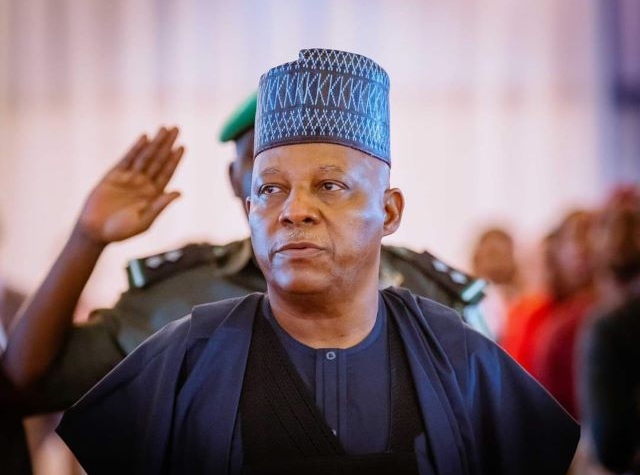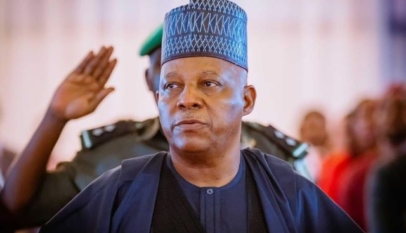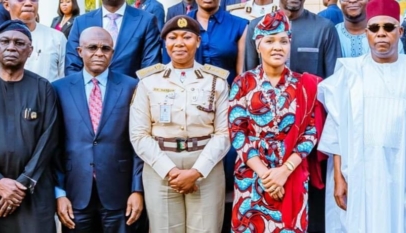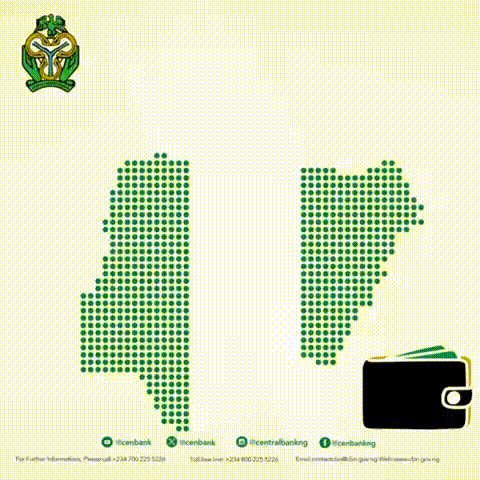
Presidency Clarifies Misinterpretation of Shettima’s Remarks at Adoke’s Book Launch
The Nigerian Presidency has clarified that Vice President Kashim Shettima’s remarks at the launch of Mohammed Adoke’s book on Thursday were not, in any way, a criticism of President Bola Tinubu’s actions regarding the declaration of a state of emergency in Rivers State.
Mr. Stanley Nkwocha, Senior Special Assistant to the President on Media (Office of the Vice President), made this known at a news conference on Friday in Abuja.
“The Office of the Vice President has noted with serious concern the gross misrepresentation of remarks made by Vice President Shettima during the public presentation of the book,” Nkwocha said.
The book, OPL 245: The Inside Story of the $1.3 Billion Oil Block, authored by Mohammed Bello Adoke (SAN), was launched at the Yar’Adua Centre in Abuja on Thursday, July 10, 2025.
“Certain online platforms and individuals have distorted the Vice President’s comments in pursuit of a mischievous agenda. They twisted his account of how the administration of former President Goodluck Jonathan once considered removing him from office then as Governor of Borno State at the height of the insurgency in the North East,” he added.
Nkwocha stressed that the reports sensationalized and stripped Shettima’s remarks of their proper context.
“It ventures into fiction by drawing false equivalence between his personal experience and the state of emergency declared in Rivers State, as well as the subsequent suspension of Governor Siminalayi Fubara by President Tinubu,” he said.
Nkwocha clarified that Shettima’s comments were made in the context of acknowledging Adoke’s professionalism during his tenure as Attorney General of the Federation.
He emphasized that the Vice President and the entire administration fully support and stand by the President.
“Shettima remains firmly loyal to President Tinubu and is committed to implementing the difficult but necessary decisions to protect Nigeria’s democracy.
“We urge media organisations and political actors to desist from the destructive practice of taking statements out of context to fabricate non-existent conflicts.”
He added that Shettima’s remarks were intended to contribute to a discourse on Nigeria’s constitutional evolution and highlight how complex federal-state tensions have been managed through legal mechanisms.
“For the avoidance of doubt, President Bola Tinubu did not remove Governor Fubara from office. The constitutional measure implemented was a suspension, not an outright removal.
“This action, along with the declaration of a state of emergency, was in response to the grave political crisis in Rivers State at the time a situation that saw the State House of Assembly complex demolished and the Governor facing a looming threat of impeachment by aggrieved lawmakers.
“No objective observer can deny that the President’s decisive intervention brought calm and stability to Rivers State,” Nkwocha said.
Recounting his own experience, Shettima spoke at the event about his ordeal under former President Jonathan’s administration.
“In the last four years of the Jonathan administration, I was the most demonized person public enemy number one,” Shettima said.
“There are two gentlemen here. Some decisions are taken in a very rare peace circle: the President, the Vice President, the Senate President, and the Speaker of the House of Representatives.
“In one such conclave, former President Jonathan with whom I have now reconciled was mulling the idea of removing the Borno State Governor.
“Aminu Tambuwal, then Speaker of the House of Representatives, had the courage to tell the President, ‘Your Excellency, you do not have the power to remove an elected councillor.’
“The President was still not convinced and raised the idea again at the Federal Executive Council meeting.
“Mr. Adoke told him, ‘Mr. President, you do not have the powers to remove a sitting governor, not even a councillor.’
“They sought the opinion of another SAN in the cabinet, Kabiru Turaki, who said, ‘I concur with my senior colleague.’ That was how the matter was laid to rest, and that moment sealed my relationship with Mr. Adoke and Aminu Tambuwal.”
Nkwocha explained that the Vice President’s comments were extemporaneous and focused on the importance of public officials documenting their stewardship and embracing accountability.
He stressed that Shettima’s historical references were meant to highlight principled decisions by former public officials and his longstanding ties with Adoke and Tambuwal.
He reiterated that the current situation in Rivers State is not comparable to the North East insurgency under Jonathan, where violent non-state actors threatened national sovereignty.
“That situation demanded unified federal and state responses to terrorism. In contrast, President Tinubu acted strictly within constitutional limits and in consultation with relevant stakeholders to restore democratic order in Rivers State.
“Nigeria’s laws provide a clear framework. Section 305(3)(c) of the Constitution authorizes extraordinary measures when there is a breakdown of public order and safety that requires urgent action.
“The crisis in Rivers clearly met that constitutional threshold — marked by politically motivated violence, attacks on federal institutions, and near-total breakdown of governance — conditions unacceptable in any democracy.”
Nkwocha said President Tinubu acted with full constitutional compliance. His proclamation under Section 305(2) was ratified by an overwhelming bipartisan majority in the National Assembly, as required by law.
“This cross-party consensus to suspend the government of Rivers State, led by Governor Fubara, reflects a shared understanding that the situation had reached a constitutional tipping point, requiring immediate federal intervention.
“Let there be no confusion — President Tinubu’s decision to suspend Mr. Fubara and others from exercising the functions of office averted a more drastic step: outright removal.
“To conflate suspension with removal is misleading. Any interpretation of Shettima’s remarks as a critique of President Tinubu is either a willful distortion or a deliberate disregard for constitutional context,” Nkwocha concluded.




